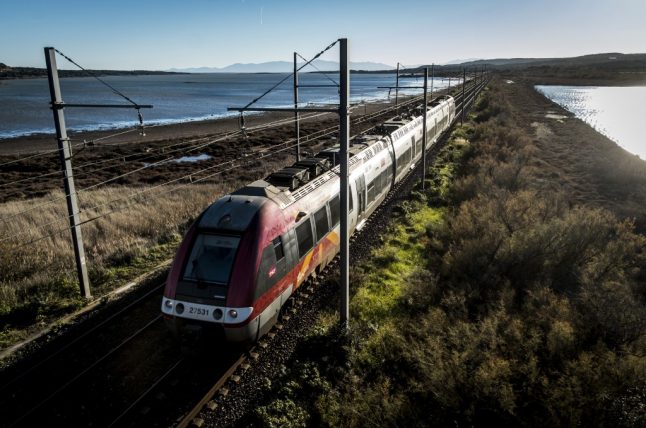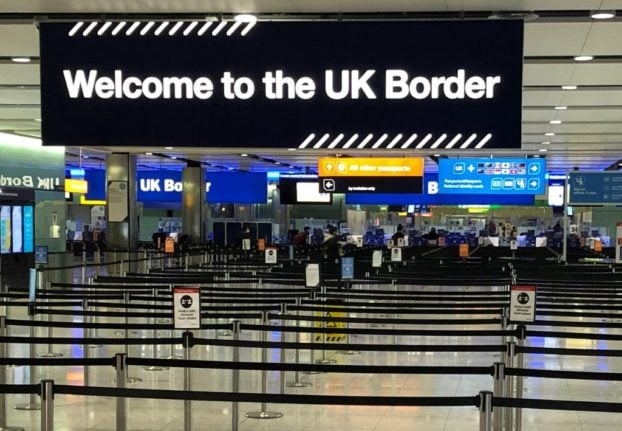Junior Minister for Transport Jean-Baptiste Djebbari said on January 7th that he would propose a “concerted action plan” of several billion euros to “preserve the maximum number of France’s small, regional train lines”.
“I want to give the TER services (regional trains) back the role they deserve,” Djebbari said during a Senate debate on the French regional railway system.
Small railway lines cover 9,000 kilometres of France’s rail tracks – 32 percent of the national rail network.
However the lines have been struggling with degradation and financial debt for a long time, with about 30 small train lines closing down the past 10 years.
Some rural lines in the south-west have not been fully maintained for 50 years and sections of track have not been re-laid since the 1930s.
Around half – over 4,500 kilometres – of France's lignes de desserte fine (lines of local access) are operating at low speeds because the track is unreliable. Several dozen of them have been “suspended” but not yet officially axed.
EXPLAINED: Why rail services in rural France could soon be derailed
The government’s new action plan will aim to reinvigorate the lines in order to preserve what for many is a crucial means of transport by splitting small and rural trains into three separate categories:
-
Lines that are “structurally important” for the country
-
Lines on which major renovation is already planned
-
Other lines
For train lines that fall into the latter category, regions will need to “experiment” with “innovative solutions,” Djebbari said.

France's train network is considered among the best in Europe. But some tracks have not been re-laid since the 1930s. Photo: AFP
The plan is to be presented to the national rail operator SNCF and local authorities, and should be signed before mid-February, the Junior Minister said. It is part of the new transport law, Loi d’Orientation des Mobilités (LOM), which aims to give back control of certain train lines to their local regions.
Last January then-Minister for Ecological Transition Elisabeth Borne ordered a report detailing all the issues facing France’s small train lines, with case-by-case solutions. The report was supposed to be presented to the French Parliament before the end of July 2019.
When asked by several senators to publish the full report, Djebbari declined.
“It’s no longer the time for reports, it’s time to act,” he said.

The TER is crucial in connecting rural France with its cities. Photo: AFP
France's rail network is considered among the best in Europe, ranked seventh in the 2017 European Railway Performance Index by consultants BCG.
Despite their lacking in profit, the French government has stood firm in its intention to protect the country's rural rail lines.
“In many territories, railway is at the heart of the regions' strategy for developing mobility,” said Prime Minister Edouard Philippe in 2018, after a report recommended the government shut down the unprofitable, less used lines.
The government’s new push to safe the rural rail network comes at the same time as France is ridden by record-long transport strikes that have limited the country’s public transport services to a minimum for over a month. SNCF employees are part of the movement striking to protest the government’s plan to overhaul the French pension system, by ridding the country of its 42 current pension regimes and replacing it with one, universal points-based system.
Rail workers worry the new system will make them work longer for smaller pensions, while the government says the change is necessary to ensure a viable future for France.
Read all of our strike coverage here.



 Please whitelist us to continue reading.
Please whitelist us to continue reading.
Member comments